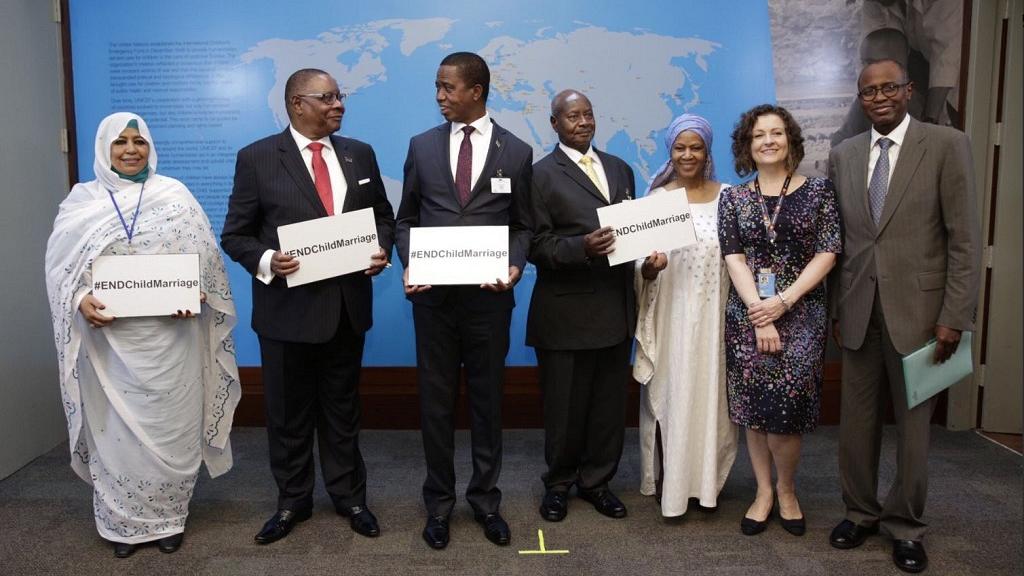President Edgar Lungu of Zambia, President Yoweri Museveni of Uganda and President Peter Mutharika of Malawi have pledged to support efforts in ending child marriage in Africa by 2030.
They made the pledge ahead of the opening of the 72nd United Nations General Assembly together with the African Union Social Affairs Commissioner Amira Elfadil at an END Child Marriage event organised by UN Women in New York .
President Lungu acknowledged that the problem is ongoing in Africa and girls who marry young have been denied their rights.
This point was buttressed by President Mutharika who said every child must be empowered to reach their highest potential in life.
“We cannot harvest the best potential unless we stop early marriage,” he added.

After a two-year parliamentary process and subsequent approval in February, President Peter Mutharika signed a constitutional amendment in April this year quashing a previous practice where minors aged 15 years and above can marry with consent from their parents.
On his part, President Museveni said freedom of choice will come only if girls can be independent of parents and husbands. He added that policies against the practice are being implemented and the goal will be attained.

The African Union Social Affairs Commissioner Amira Elfadil called on all men and the youth to participate in ending child marriage in Africa.
African countries account for 15 of the 20 countries with the highest rates of child marriage globally and the region has the world’s highest prevalence of adolescent pregnancies, according to reports.
In all, 40 percent of girls marry before age 18 in Africa and they have more children on average than those who delay marriage.
This year, Malawi joined the likes of Gambia and Tanzania to ban child marriage after it raised the legal marriage age to 18.
Perpetrators of child marriages in Malawi commit an offense punishable by five years imprisonment and a fine of about $143.
Former Gambian President Yahya Jammeh prohibited the practice which is now punishable by twenty years imprisonment.
In Tanzania, a court ruled as unconstitutional sections 13 and 17 of the Tanzania Law of Marriage Act, which allowed girls to marry at age 15 with parental permission and at age 14 with the permission of a court.
The parliament of Chad in December last year adopted a reform of its penal code which raises the legal marriage age from 16 to 18.
Chadian President Idriss Deby also promulgated a law that punishes any person party to the marriage of a minor by 5 to 10 years prison sentence and a fine of 500,000 to 5 million FCFA (750 to 7,500 euros).
Zimbabwe is yet to come up with laws to criminalize child marriages despite last year’s court ruling that outlawed the practice by striking out section 22(1) of the Marriage Act which allowed under-aged marriage in contravention of section 78(1) of the Constitution which sets 18 years as the minimum age.
Other African countries who have already outlawed child marriages are struggling to enforce the law as the practice continues in the blind side of the authorities.

